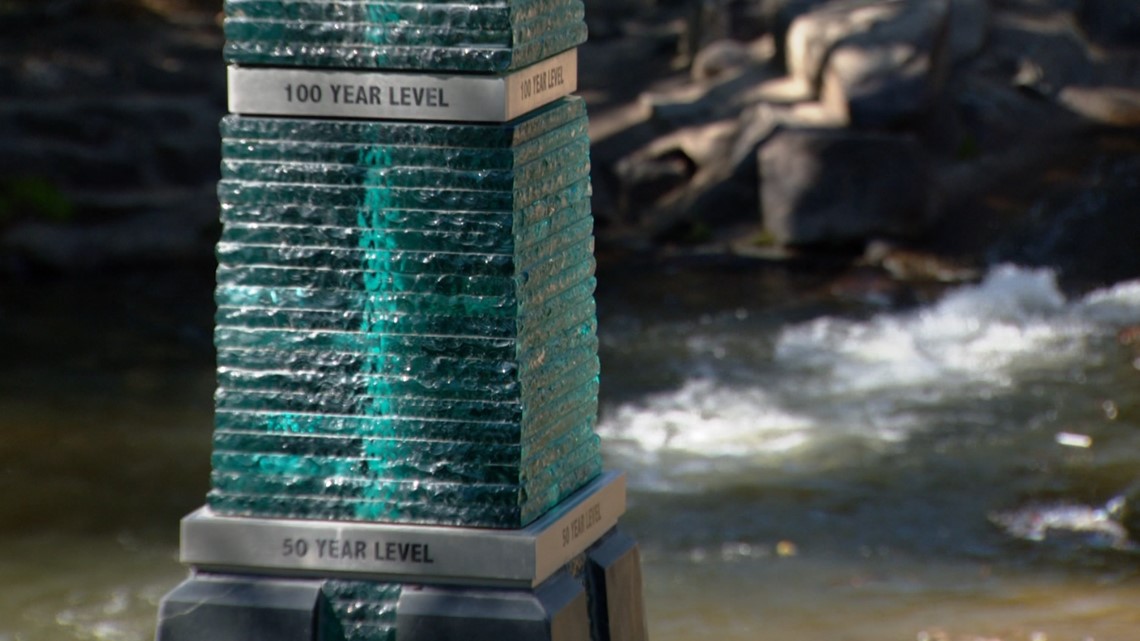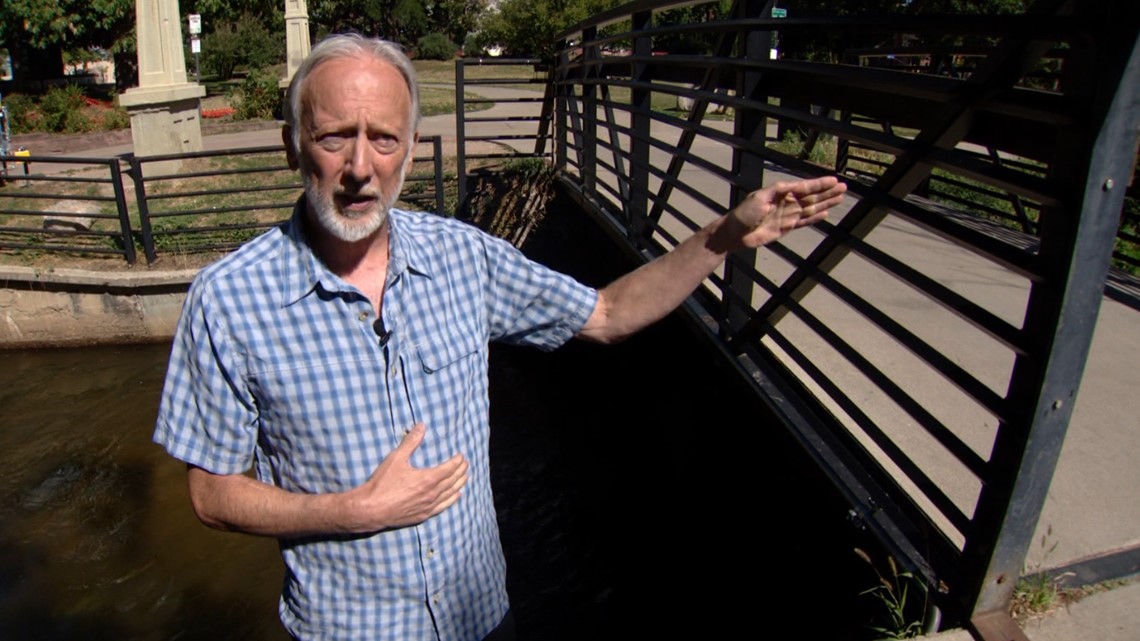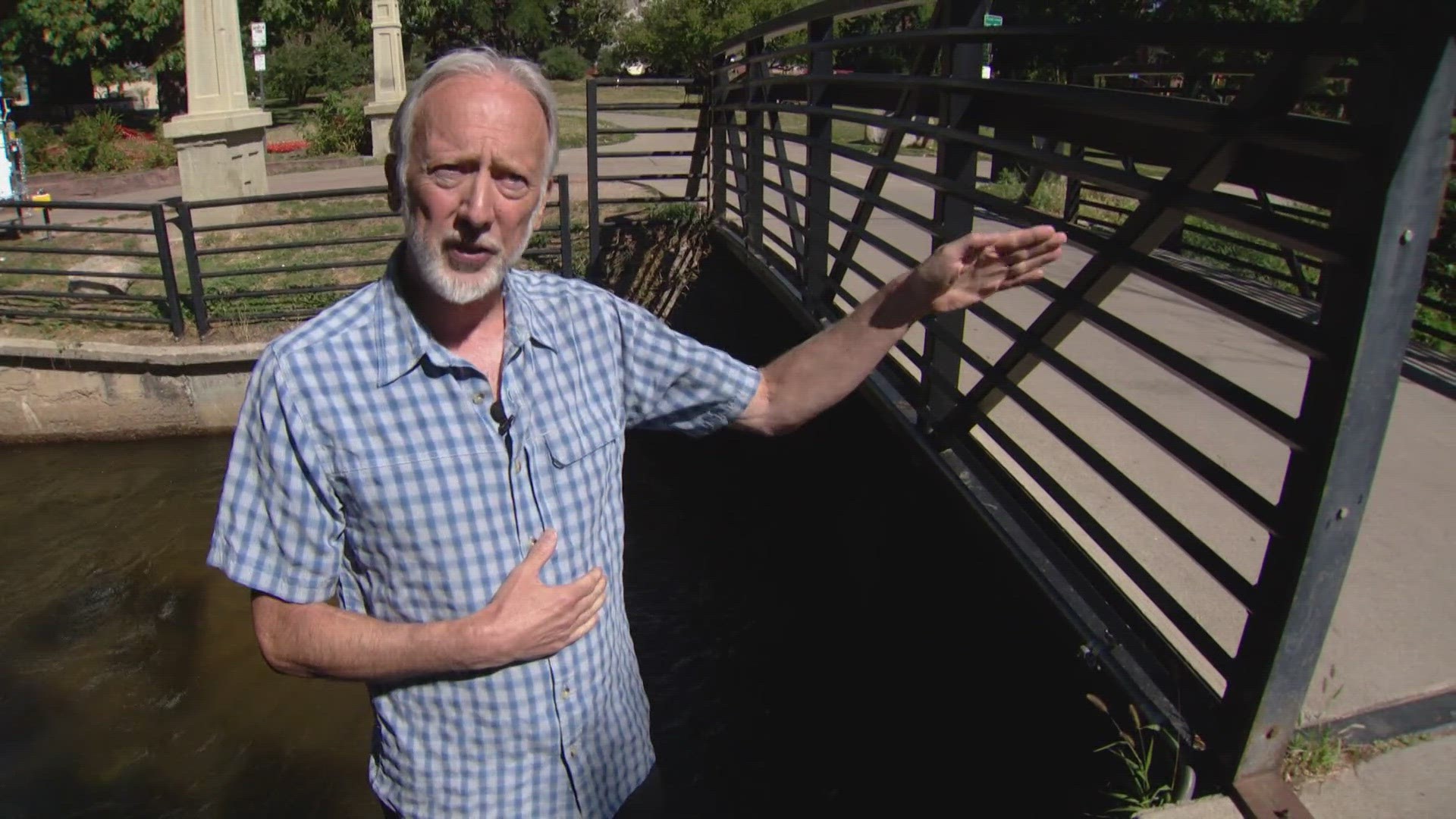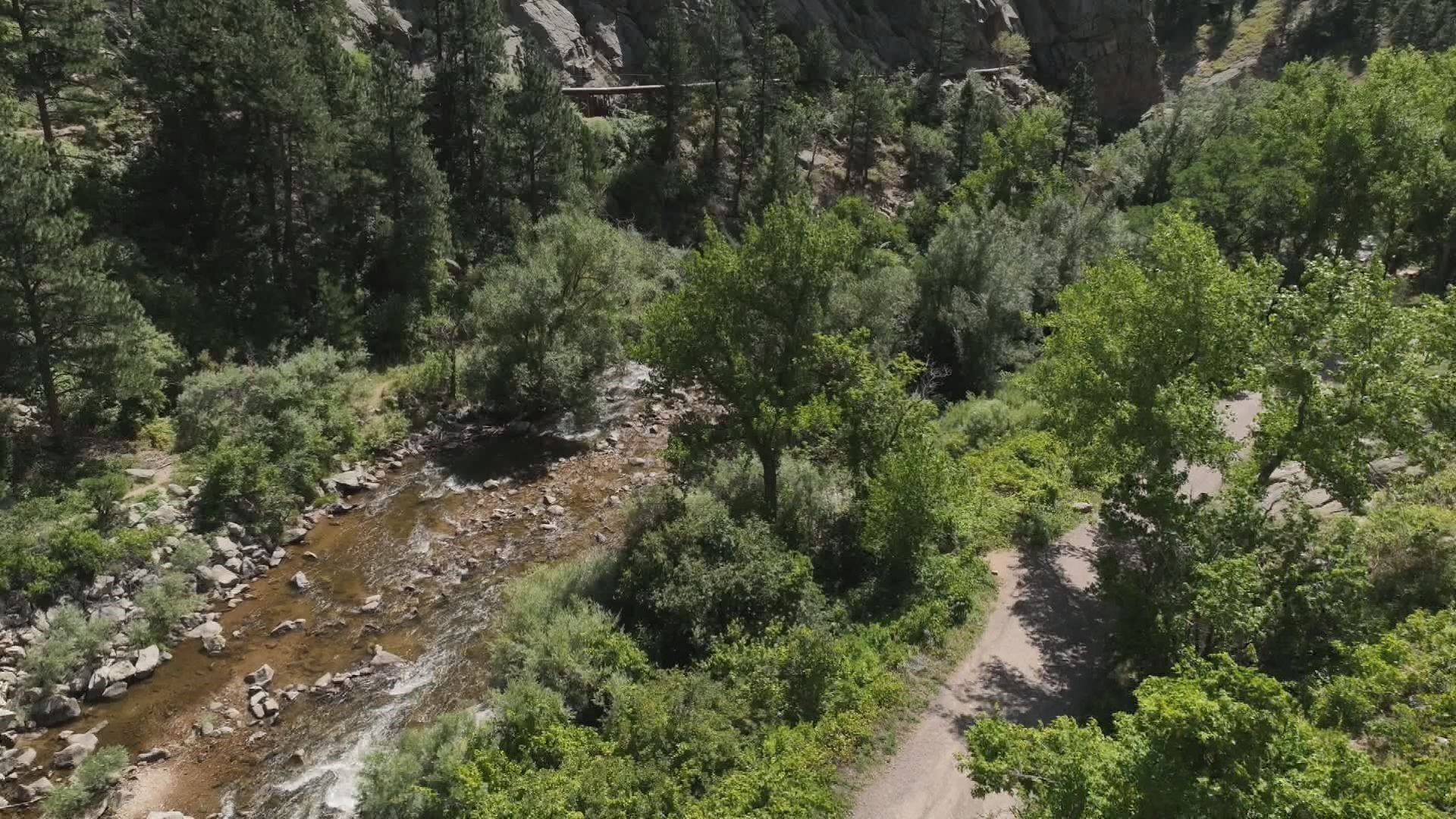BOULDER, Colo. — Keeping track of floodwaters is nothing new for Marshall Frech.
"Believe it or not, I filmed my first flood with a 35 mm slide camera in 1972," Frech said.
He was just a kid, then. As an adult, Frech has worked on about a dozen documentaries, including "Flash Flood Alley," which studied flooding issues through central Texas.
"People told me from afar, you got to get to Boulder to see where they put the library," Frech said.
Frech moved to Boulder in 2000 to keep track of floodwaters across the Front Range and to keep track of how the government responds. The Boulder Public Library straddles Boulder Creek, with part of the building over the moving water. These are the types of things that interest Frech.
"I was living in Boulder the night the flood started," Frech said.
On Sept. 12, 2013, Frech grabbed his camera to document the deluge of Boulder Creek and surrounding waterways from Lyons to Jamestown to Evans.
"That was a real wake-up call for the Front Range in Boulder," he said. "It happened to get this level."


He's referring to the flood marker at Boulder Creek in the middle of the Boulder. Frech said the floodwaters went over the 100-year flood stage mark. At this level, Frech said, the water refuses to stay in its track.
"It wants to go straight. It's not gonna want to make a corner," he said. "It's gonna want to punch through, that's what high-stage flows do."
As an example of that, Frech pointed to an irrigation ditch that cuts through the heart of Boulder. He said when the water is high, it wants to go straight where the ditch goes, which runs right up against an apartment complex and a neighborhood.
"A lot of students, a lot of apartments, a lot of people who move in and out frequently may or may not be aware of what these ditches could turn into at high-stage flows," Frech said.
Frech said he believes government leaders need to keep track of the water from the canyons above Boulder, where the problems usually start, before they reach the city limits.
"The 2013 event really crept up on a lot of the people whose business it is is to pay attention, and I don't fault them," Frech said. "Those are the vagaries of nature."
> Video below: Drone footage of Boulder, 10 years after the floods:
The clarity of action is to share the lessons learned from 2013, he said. There will be another flood and people should know what that entails where they live.
"You really owe it to the citizenry in certain areas and specific areas to let them know that they are in a high-hazard zone and what might occur," Frech said.
That's important because, he said, history shows it will repeat itself.
"This has happened thousands of times, and it's going to happen thousands of more times," Frech said.


SUGGESTED VIDEOS: Colorado Climate


